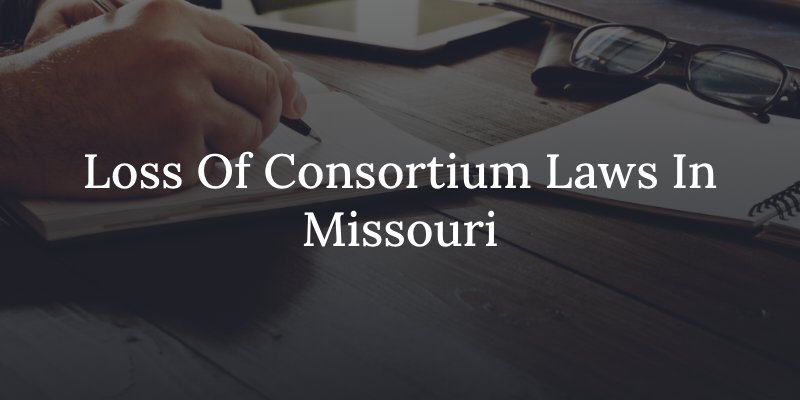When an injury victim seeks compensation for their damages in court, they hold a negligent person or business liable for the consequences of the injury caused by their action or inaction. These consequences are known as “damages” in personal injury claims. Common damages in personal injury claims include two types, economic and non-economic damages. Economic damages are tangible and easy to calculate by adding up medical bills and lost paychecks, but non-economic damages to an injury victim are often the most difficult aspect of a serious injury to calculate and the hardest on the injury victim. Non-economic damages almost always include compensation for “pain and suffering” but often, other intangible, non-economic damages also apply. Claiming “loss of consortium” is not uncommon after a personal injury, but what is “consortium,” and how does it impact a St. Louis personal injury claim?

What Is Consortium?
“Consortium” describes a connection or association between two individuals or entities. The word is sometimes used to describe businesses merging or joining together for a common purpose, but in personal injury claims and lawsuits, “consortium” describes important aspects of a relationship between two people. In most cases, it describes a physical and emotional connection between spouses or partners, but “filial consortium” describes a loving, supportive relationship between parent and child.
What Is a Loss of Consortium Claim in a Personal Injury Case?
A loss of consortium claim seeks financial compensation for the non-economic damage caused to the loved one of an injury victim. It’s typically sought by a spouse or partner when their loved one suffers a serious injury or death caused by someone else’s negligent, reckless, or intentionally wrongful behavior. Loss of consortium applies to the loss of any or all of the following:
- Emotional support
- Companionship
- Care
- Love
- Sexual relations
- Affection
- Services within the home
- Society (company)
An injury victim may include a claim for loss of consortium for their spouse or the spouse may file for loss of consortium against an at-fault party in a personal injury claim after a car accident, defective product injury, premises injury, medical malpractice, or any injury resulting from another party’s negligence. Loss of consortium is also common in wrongful death claims.
Less commonly, a parent may file for loss of filial consortium after the serious injury or wrongful death of a child to recover compensation for the loss of the child’s love, care, companionship, and future support.
Loss of consortium is a serious non-economic damage with life-altering effects. Although financial compensation cannot undo the harm, it is the civil court’s only means of offering redress and a sense of justice to victims and their family members.
How Does Missouri Law Determine Liability for Loss of Consortium?
Recovering compensation for loss of consortium requires proving the negligent party’s liability. The injury victim (plaintiff) in the case, must have compelling evidence demonstrating the following against the at-fault party (defendant):
- The at-fault party owed a duty of care to take reasonable measures to prevent injuries
- They breached this duty through negligence, recklessness, or wrongdoing
- Their negligent breach of duty directly caused injury
- The injury victim and their family suffered damages, including the loss of consortium
It often requires medical expert witnesses such as psychologists and therapists to prove the impacts of loss of consortium and help determine an appropriate compensation amount.

